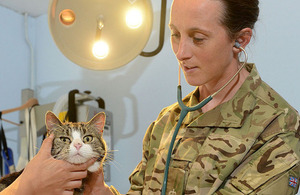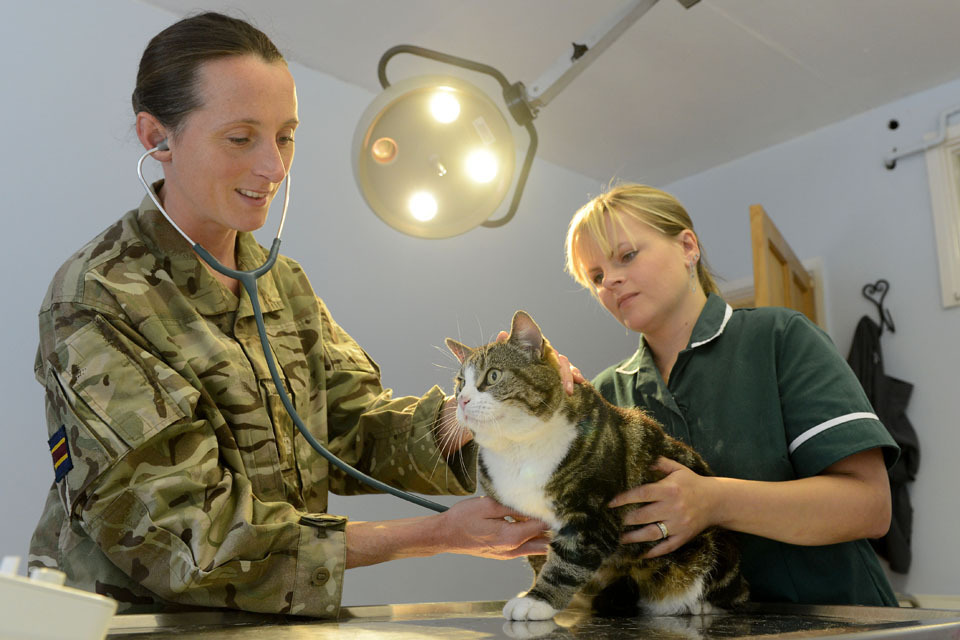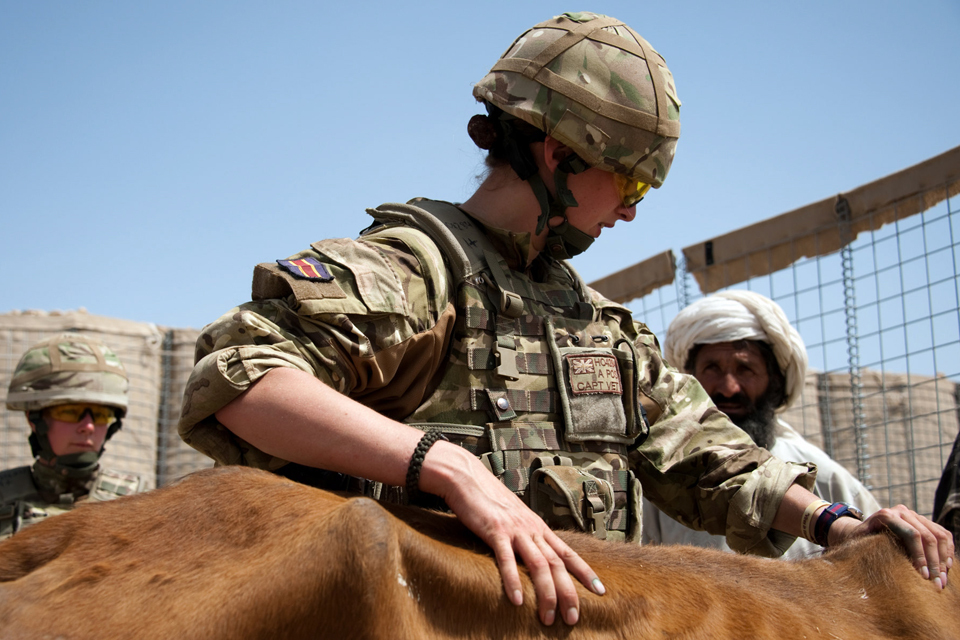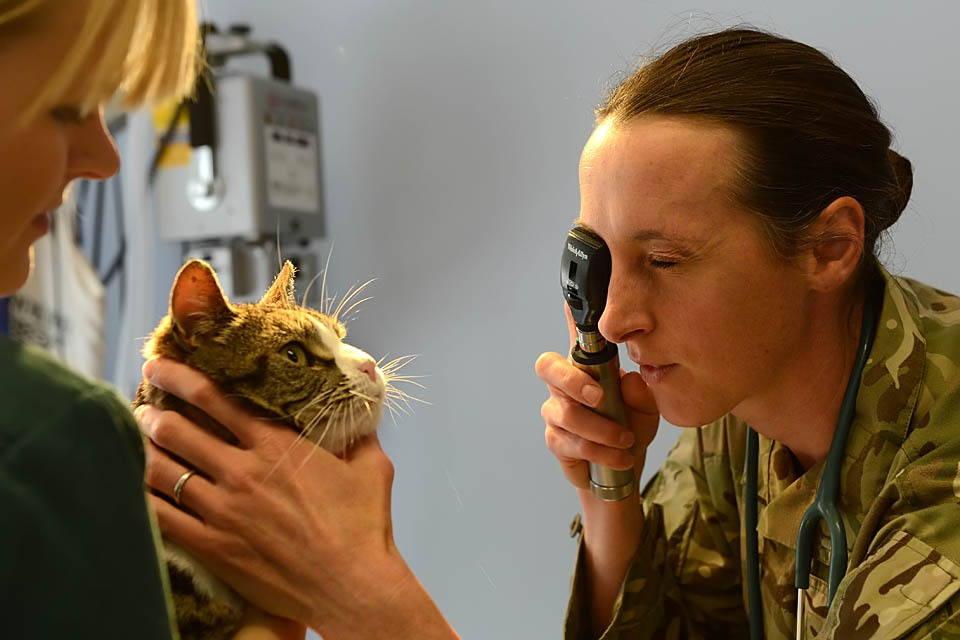Reservist vet
Angela Heeley talks about balancing her life as a busy vet with a career as an officer in the Army Reserve.

Army reservist and PDSA vet Angela Heeley checks over one of her feline patients [Picture: Corporal Barry Lloyd, Crown copyright]
The 35-year-old works for the People’s Dispensary for Sick Animals (PDSA) in Llanharan, south Wales, and is also a major serving with 306 Hospital Support Medical Regiment, Royal Army Veterinary Corps (RAVC).
It was at Cambridge University that Angela’s interest in the reserves began:
At uni, I joined the Officer Training Corps (OTC) in the Artillery Troops, and when I graduated I thought about staying in the reserves, maybe in the Artillery.
After graduating in 2003, Angela went to work as a vet in rural Warwickshire for 18 months in mixed practice, tending to dogs, cats, horses, cows, sheep, and more:
I enjoyed the opportunities you got with the OTC and I enjoyed meeting different people. I enjoyed doing the training and I thought this was something I was getting a lot out of, so I continued with it.
But with my job I found it difficult to give that commitment, so another option was to join as a reserve veterinary officer, which is what I did in 2005.

Angela will be taking part in this year's Uniform to Work Day [Picture: Corporal Barry Lloyd, Crown copyright]
In 2009, Angela deployed to Afghanistan:
My husband was a bit worried. We’d only got married about 4 months before, but I’d assured him I’d be safe.
During her deployment, Angela worked to build rapport with local Afghans by helping with their animals, mainly sheep and goats. She said:
A lot of the problems they have with their flocks are husbandry-related and also the environment and kinds of medication they can get hold of.
You can’t just put a sticking plaster over some of those problems. They are so limited with the resources they’ve got, but they do well with those resources.

A British Army vetinary engagement team at work in southern Afghanistan (library image) [Picture: Sergeant Russ Nolan, Crown copyright]
Angela said her employers have always been helpful with her military commitments:
The PDSA were brilliant when I deployed to Afghanistan. They got someone to cover my work and were very supportive.
Last year I took 2 months out to help out at the Cyprus Military Working Dog Squadron. The OC (officer commanding) and veterinary officer there were needed for a role in Germany, so I filled in for them.
That was really good of my employer at the time because I was the senior vet and it was a bit trickier for them to release me, but it was good for succession planning.
Angela finds that her day job and being a reservist complement each other, with skills and training proving useful in both walks of life:
At the PDSA, for the first few years I was a regular vet, but as the senior vet I managed the veterinary team and the head nurse. I found that the leadership training and man-management skills that I learned in the army really helped augment my training in the PDSA.
Clinically, I definitely bring my experience from my civvy role into the military job. Some of my colleagues in work find it quite amusing that I’m off doing this and off doing that, and some are a bit envious because I’ve been able to get involved in so many varying things.
I get a lot of positive reaction. I’ll get comments like ‘how are manoeuvres going doc?’ One client came in, saw the flash on my arm and said ‘I didn’t know you were RAVC’. So you do find there’s a lot of interest in what you do.

PDSA vet and army reservist Angela Heeley at work at the PDSA [Picture: Corporal Barry Lloyd, Crown copyright]
One of the things Angela likes best about life in the Army Reserve is the sheer variety of people she gets to meet:
Next to you there may be a neurosurgeon and on the other side there’s a bus driver. I love hearing about what they do; it’s fascinating.
Angela will be taking part in this year’s Uniform to Work Day on Wednesday 25 June. The annual event gives armed forces personnel the chance to raise awareness of the military among the general public and promotes Armed Forces Day, celebrating all of those who make up the UK’s regular and reserve forces